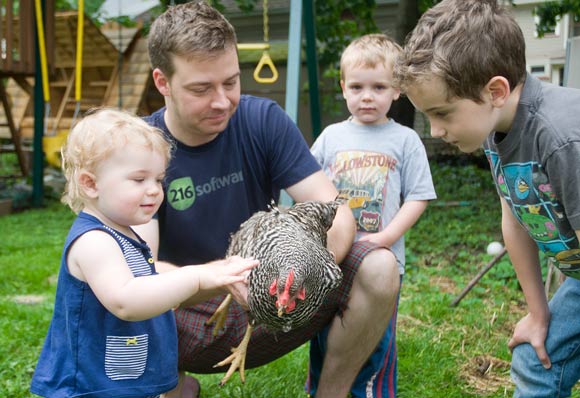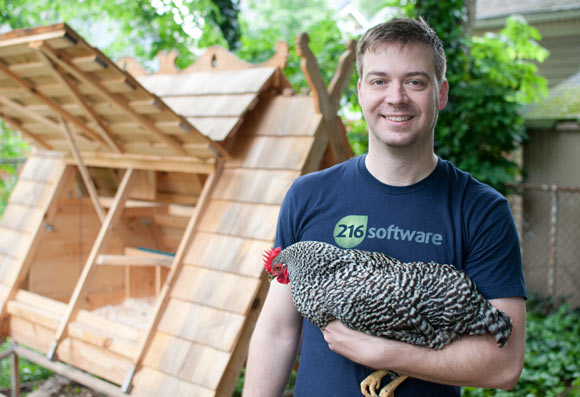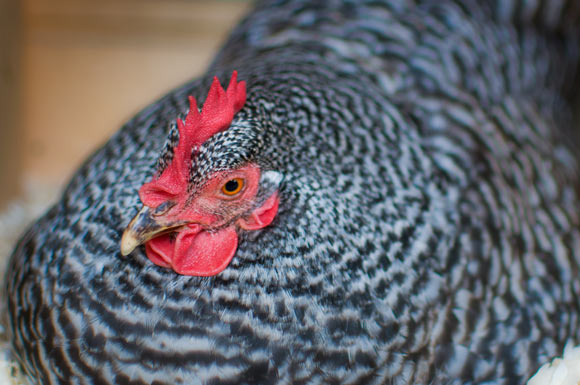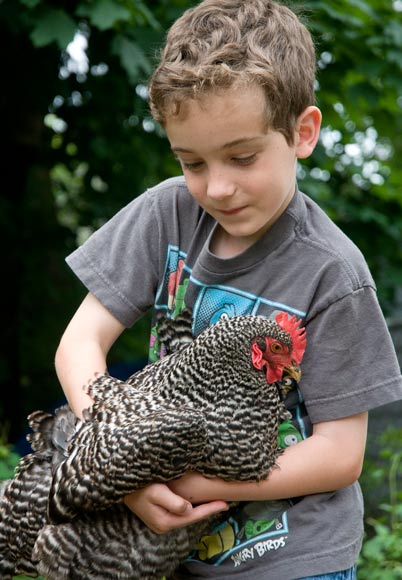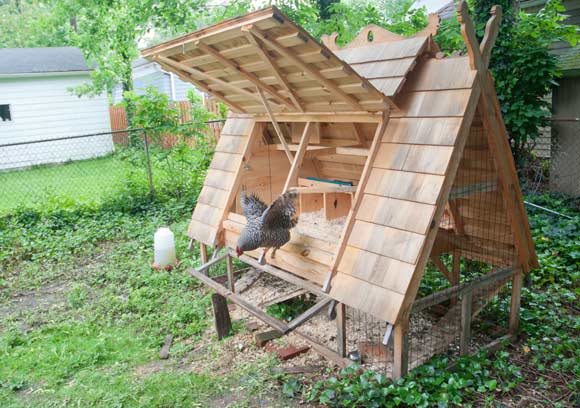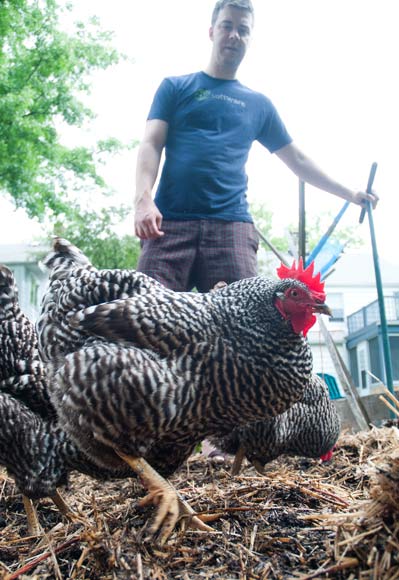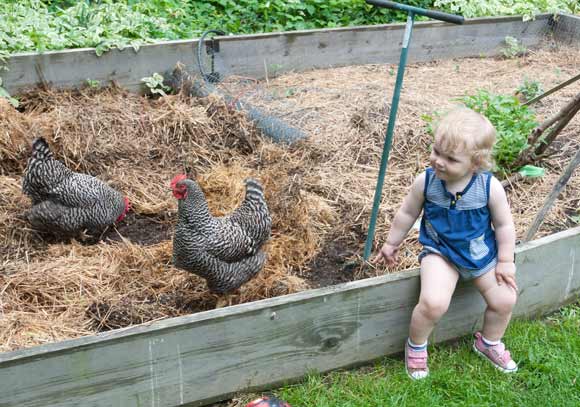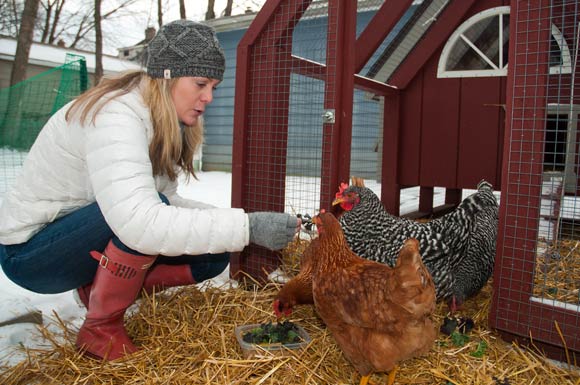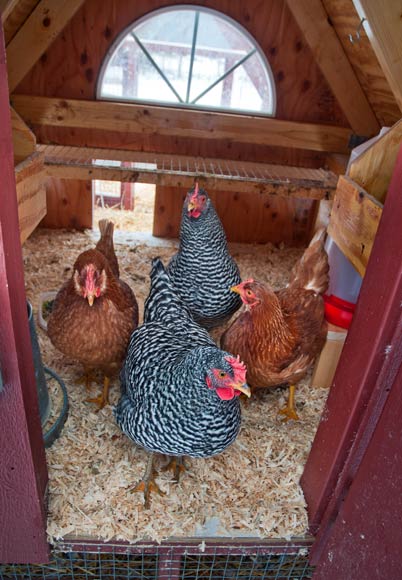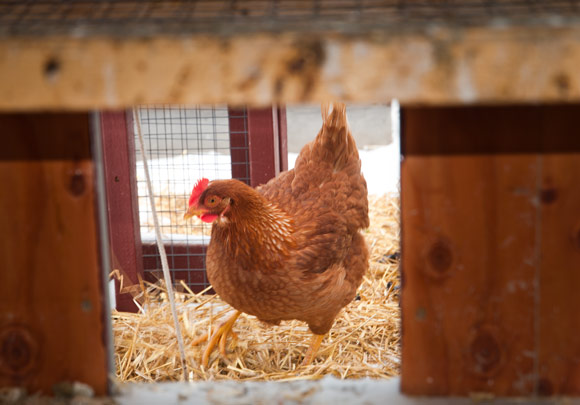pets with benefits: how urban chickens are helping to build community
It's been one year since the City of Cleveland Heights amended its zoning code to allow residents to keep chickens and already 18 homeowners have taken the plunge and 6 more are slated to join the flock this month. The changes were just one aspect of a comprehensive overhaul to the city's zoning codes, an ambitious move intended to make the community one of the most sustainable in the region.
"We saw that our zoning code didn't really address the issues and needs of our citizenry," explains Kara Hamley O'Donnell, City Planner. "We knew it had to change based on the way today's residents looked at the environment."
The progressive zoning rules were drafted to encourage local food production, increase energy efficiency, reduce storm water runoff, and foster a more bike-friendly community. Thanks to the legislation, city residents can enjoy front-yard vegetable gardens, backyard rain barrels and clotheslines, water-permeable driveways, and up to four egg-laying hens (no roosters).
Despite a handful of vocal residents predicting a chicken-induced apocalypse as a result of the legislation, there has been almost zero blowback, say city officials. As more and more residents welcome chickens into their backyards, more and more of their neighbors are discovering that there was nothing to get their feathers ruffled over in the first place.
"Familiarity breeds comfort," notes O'Donnell.
In contrast to what some might believe, hens are quieter than barking dogs (and less dangerous should they escape their confines), less destructive to the local fauna than marauding felines, and rather than attract pests, chickens actually devour them at a staggering clip. Flies, fleas, ants, mosquitoes, slugs and even mice are no match for the scratch-and-peck patrol of hungry hens.
And then there are the eggs -- farm-fresh, delivered for free, and untainted by the chemicals and guilt that accompany every dozen factory-farmed grocery store eggs.
As more urban communities grapple with the decision of whether or not to allow its residents to keep hens -- and they should: it's no coincidence that 70 percent of Forbes Most Desirable Cities happen to be chicken-friendly -- they will look to places like Cleveland and Cleveland Heights for guidance and information.
It's been four years since the City of Cleveland enacted legislation that allows hens into the community, a move that was by all accounts ahead of its time given our Rust Belt environs.
"Many other cities had not done this," explains Karen Butler, Director of the Cleveland Department of Public Health. "But we like to think that we are a very progressive city, particularly as it relates to issues pertaining to our environment, health and really looking at innovative ways that we can support our residents."
Butler says that the move was in response to increased inquiries to city council from residents who were interested in raising chickens. In the time since the law was enacted, between 60 and 70 permits have been granted, a number that continues to grow, she adds.
Residents are permitted to keep one hen per 800 square feet of property -- roughly five per average-size lot. Like in Cleveland Heights, interested homeowners must first submit paperwork and wait for approval before adding hens to their backyard. As for any major problems as a result of the legislation, Butler says they have yet to materialize.
"We might have had some calls about unlicensed hens, poor fencing and things like that," she says. "But other than that it's been very positive."
While the City of Brooklyn, Ohio, enacted similar legislation last year, the practice still is the exception rather than the rule. Even in Lakewood, a young and progressive city if ever there was one, efforts to change the laws have been fruitless.
April Stoltz, a retired U.S. mail carrier and 20-year Lakewood resident, hopes to change that. She formed the group Hens in Lakewood to "decriminalize hens" in her community, and says that support for the movement is widespread and growing.
"There are a lot of people in Lakewood who get it, like it, support it, and/or want to actually do it," she says. "We want to be able to feed our families quality food from our own backyards."
To further her group's efforts, Stoltz has collected hundreds of signatures, held discussion groups and even escorted the mayor and a few council members to chicken-rich homes in the Detroit Shoreway neighborhood.
"We did it so they could see first-hand what's involved," she explains. "One of the councilmen said to me, 'Seeing it is believing it; perception really is reality.'"
Although council has agreed to take up the measure this summer, Stoltz fears that the votes aren’t there for passage.
It's been about a year since Cleveland Heights resident Matt Wilson received his four little peeps in the mail. Not long after receiving them he formed a public Facebook page where he and other chicken newbies share info and best practices. And on June 15, the group will host the first annual Cleveland Heights Tour de Coop, with 10 homeowners opening up their yards and coops to other chicken keepers and the just plain chicken-curious.
A year in, Wilson reports that the experience has been as enjoyable and educational for him and his family as he had hoped it would be. But what he didn't expect was how the simple practice of keeping chickens would actually improve relations with his neighbors.
"Giving away eggs became a fun way to meet new people on the block," Wilson explains. "Several neighbors brought their children over to see the birds and feed them. Neighbors that I otherwise might never get to know bring their grandchildren over. And my oldest son loves playing the role of tour guide answering questions from adults and other kids."
That is the precisely the kind of story that city officials in Cleveland Heights love to hear. If the original intent of the new sustainability rules was to make the city a more desirable place to live, what better way to accomplish that than by fostering better relationships between residents?
"When we were writing this code, that outcome was not something I necessarily would have predicted -- and it's one of the most positive aspects of it," reports O'Donnell. "It is actually fostering community."
Photos Bob Perkoski


